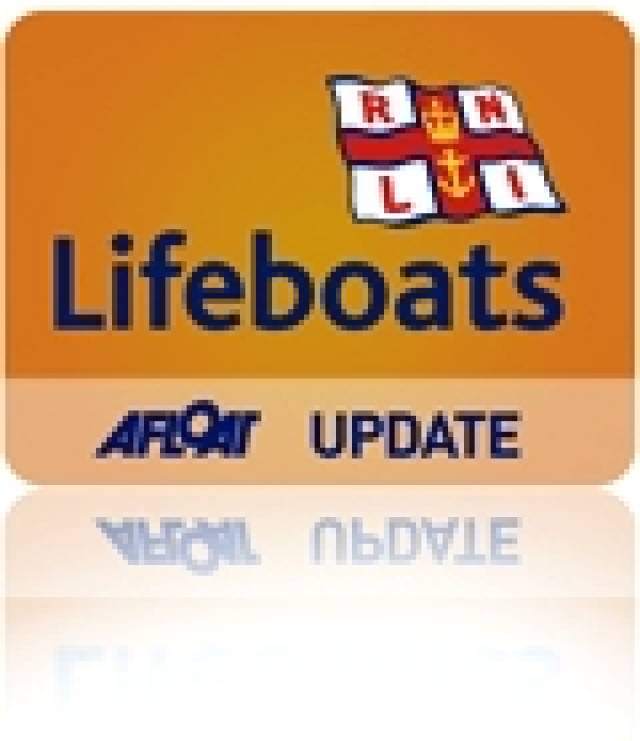#rnli – Clifden RNLI have this week taken delivery of a new Atlantic 85 lifeboat at the station. The lifeboat is named Joyce King and will be replacing the Atlantic 75 lifeboat that has been on service in the Galway lifeboat station since 1999. This is not the only new arrival expected at Clifden as the crew also await the delivery of an all-weather lifeboat, which will be trialled there for a year, to work alongside an inshore lifeboat.
The Atlantic 85 lifeboat has some improvements on its predecessor and the lifeboat crew have been spending most of the week familiarising themselves with the new boat. The new lifeboat can operate in conditions up to a force seven and further to the Atlantic 75, allows for a fourth crewmember, more survivors and more kit onboard. The vessel is powered by two 115 horsepower engines, is composed of a strong hull and has a top speed of 35 knots. The added radar allows the crew to operate more effectively in poor visibility and to locate vessels in difficulty faster.
It carries a full suite of communication and electronic navigation aids, including VHF radio, as well as a searchlight, night vision equipment and illumination paraflares for night-time. Four out of ten RNLI callouts occur in the hours of darkness.
In keeping with the RNLI practice of ensuring that lifeboats are kept maintained to the highest standards and are routinely refitted every few years, Clifden RNLI's Atlantic 75 will go on to serve at another lifeboat station in Enniskillen. In the fourteen years the Benjamin Downing Fairbridge Atlantic 75 lifeboat was at Clifden RNLI it launched 115 times and brought 97 people to safety.
The new lifeboat has been made possible by a legacy from Mr John Charles King of Lincolnshire in England. Mr King passed away in 2009 and on his death requested that a lifeboat be named Joyce King in memory of his wife. There are no surviving relatives and very little is known of Mr and Mrs King. Through their generous bequest they have funded the Clifden lifeboat which will be put to use launching off the west coast of Ireland to those in peril on the sea.
Commenting on the arrival of the new Atlantic 85 lifeboat at Clifden, Owen Medland RNLI Divisional Operations Manager said, "We've had a very busy week here with all the RNLI crew and station management. The arrival of a new lifeboat is always an exciting time for any station and it is accompanied by an intensive week of training and familiarisation with the new boat by all concerned. This is a particularly challenging part of the coastline and this new lifeboat will assist the crew in their work saving lives at sea and assisting those in difficulty."
A date for the arrival of the all weather lifeboat to be trialled at Clifden RNLI has yet to be confirmed and will be announced in due course by the charity































































